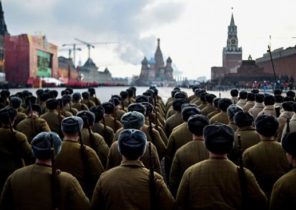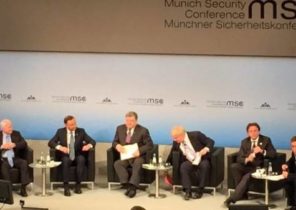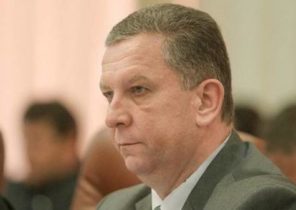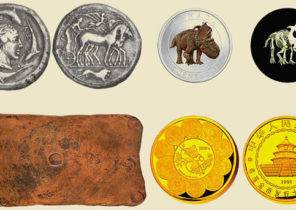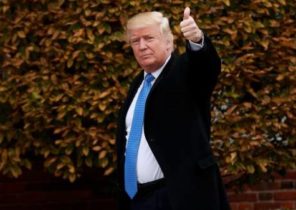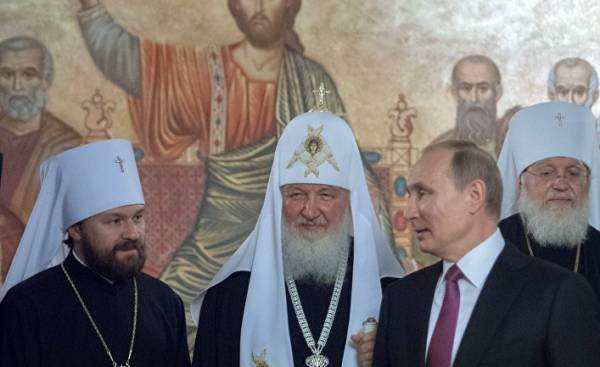
Someone is afraid that the relationship between Donald trump, Vladimir Putin and their surroundings are folded too warm and comfortable. Others think that these ties should become even stronger.
Among the supporters of rapprochement of the American evangelists, who insisted that the leaders of the two countries should act together against common enemies in the world are many, starting with the secular liberalism and ending jihadist terrorism. Perhaps the most active proponent of this line is extremely influential Evangelical preacher Franklin Graham (Franklin Graham) who says the prayer at the inauguration of the trump. Before the meeting of the presidents of trump and Putin at the recent summit of “Big twenty” Graham wrote on his page in Facebook:
“The media and the enemies of the President of trump trying to drive a wedge between Russia and the United States. Our country needs Russia as an ally in the fight against Islamic terrorism. Pray with me for President and trump for President Vladimir Putin, when they will follow this strategic meeting.”
Graham was the main organizer of the conference on the topic of persecution of Christians around the world, which was held in may in Washington, and which was attended by famous and important people from Russia and America. Metropolitan Hilarion (Alfeyev), head of the Department for external Church relations of the Moscow Patriarchate, had a brief but very warm meeting with Vice-President Mike Pence, who is a religious conservative, was raised Catholic, but later became an Evangelist.
Alpheus — Russian priest who studied at Oxford. After the conversation he stated that he was optimistic about Russian-American relations. Speaking at the conference, Vice-President of the Pence and the Metropolitan of Russia, said that Christians in the middle East suffering from genocide, and stressed the need for international action to counter those threats.
In his speech at the conference Russian priest, emphasized the idea, familiar to American listeners-evangelists (but puzzled by people not of this camp), saying that the violence in the middle East linked to anti-clerical tendencies in Western countries.
“Aggression against Christians in the modern world takes the form not only of physical violence but also restrictions of people’s rights to public expression of their faith, on adherence to its values and the open wearing of religious symbols In society…there are certain events which are increasingly recognized as the norm…We are seriously alarmed by the desire of some countries to allow euthanasia…In many European countries and in America has actively propagated the ideology, aims to support sexual minorities and the promotion of the homosexual lifestyle, and often this is done through media and the education system”.
Putin’s law on “propaganda of homosexuality” (the stated purpose of which is to stop the spread among minors of material promoting “non-traditional” sexual relations) elicited loud praise from American religious conservatives, including Graham, though liberal human rights organizations around the world condemned it, calling it “homophobic”.
Another arena of Russian-American cooperation in defense of traditional religion was the world Congress of families. This is the American Association for conducting international activities to pursue conservative social policies. The last conference of the Congress was held in Budapest and Tbilisi.
The managing Director of the Congress, Larry Jacobs (Larry Jacobs) once said at a meeting in Moscow that “Russian and East European guidance is needed to counter the secular, post-modern, aimed against the family agenda and replace what I call the cultural Marxist philosophy that’s destroying human society and in particular family.” From Rip van Winkle, asleep during the cold war, calling Americans to Russia to save US from Marxism would have caused great surprise. But Jacobs is not alone in his views.
At first glance, there will always be limitations in the relations between Russian Orthodoxy and American evangelists. In theological terms they are very far from each other. For example, the veneration of the virgin Mary is an essential component of the Orthodox faith, but alien to Protestants. Evangelicals have a positive attitude to the Semites and Israel, while in the world of Russian Orthodoxy (not its current leadership) often make themselves known manifestations of anti-Semitism. When the late Patriarch of Moscow Alexy made a warm speech before the rabbis of new York, in the country it criticized. Evangelists — this is usually uncompromising opponents of Islam, and conservative Russian Christians are more pragmatic in their attitude to the faith and well to get along with peaceful Muslims-traditionalists. In addition, Russian society is unlikely to lead America into the “family values”, because the number of divorces and abortions in Russia is much higher than in the US.
And in Russia there is the issue of freedom of religion. The Washington conference on persecution of Christians originally was to be held in Moscow, but the venue was changed when Russia passed a law restricting the activities of Evangelical missionaries, which greatly upset the American Protestants.
However, the owners of Russia, both politicians and the clergy, in General, very skillfully establish friendships and form tactical alliances doing this wherever possible. To the kings to protect the interests of Orthodox Christians in the middle East was a cornerstone of foreign policy. The Soviet Union was looking for friends around the world under the banner of proletarian internationalism. Now, apparently, returned the diplomacy of a more ancient kind.



